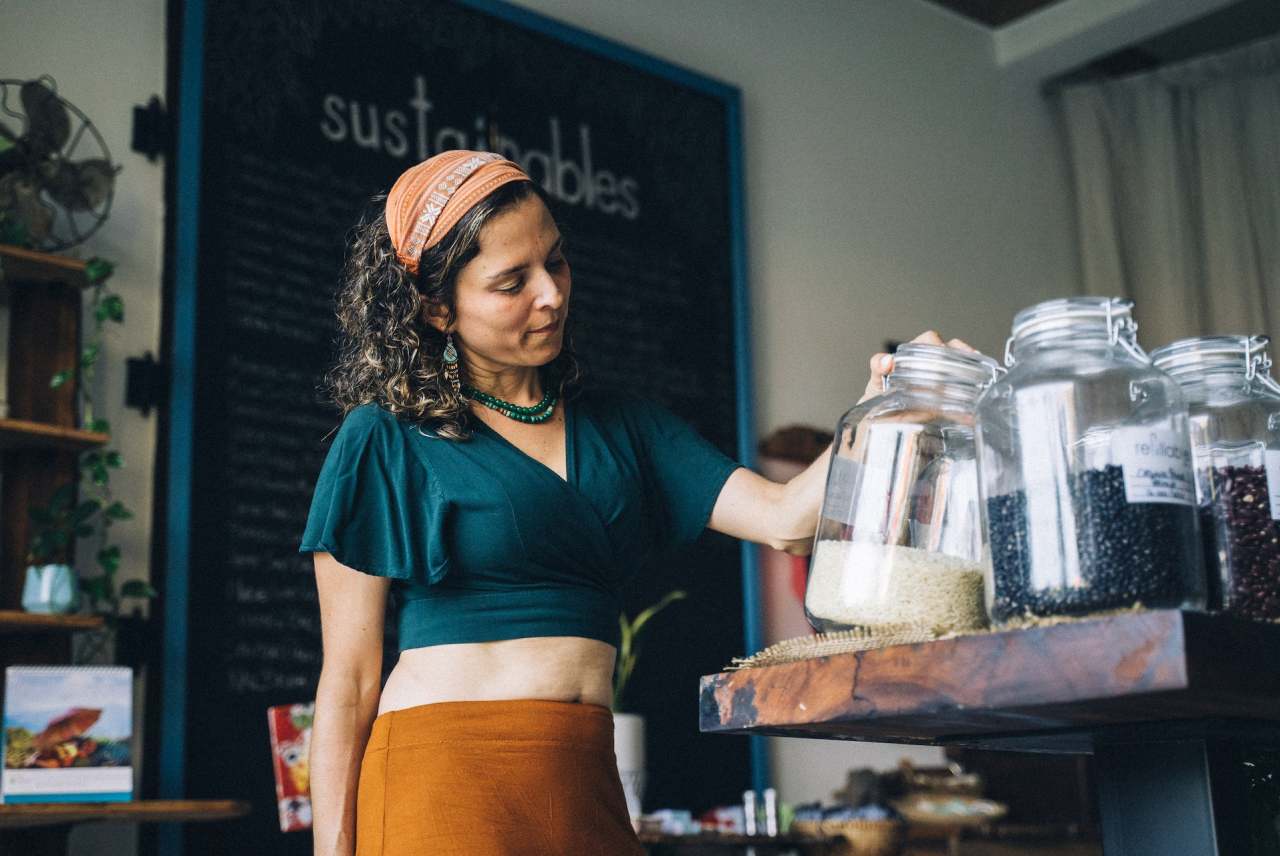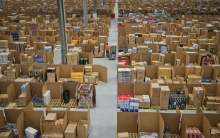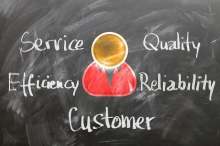Independent wholefood shops
Your local independent wholefood shop is a great option for accessing produce which is often healthy, organic and sourced with ethics in mind. These stores often have refill stations as well as stocking locally produced fresh food.
Since the beginning of the first lockdown in the UK, 41% of the British population were shopping in their local food retailers more often than usual. Hopefully this marks a lasting resurgence.
Search online for local options near to you.
Zero waste / refill shops
Zero waste shops are a great way to get introduced to a refill lifestyle. Offering a wide range of loose goods like pulses, pastas and cereals, they allow shoppers to choose amounts according to what they need which helps reduce unnecessary waste.
See the Zero Waste Network for a nation-wide map of stores or the beeco directory of loose food stores.
Wholefood wholesalers
Getting together with a few people to bulk buy from a wholefood wholesaler is an appealing solution for many – particularly when buying non-perishable bulk items.
We feature three wholesalers in our guide to eco supermarkets (Essential, Infinity and Suma)
Local buying groups
One way of accessing food for a lower price is to join a small, local buying group.
Cooperation Town is a new network of community-led food co-ops, organising on streets and estates across the country. If you become a member, the co-op provides you with affordable groceries, sourced in bulk and distributed at a very low price. The idea is one based on solidarity, not charity and can be a more sociable way of doing food shopping.
See if you have a local buying group near you or check out Cooperation Town to set up one in your area!
Food box subscription / Veg box
There was a surge in interest for “veg box” during the pandemic.
A range of companies offer organic veg (and other food) boxes, either for doorstep delivery or local collection. Many can help you discover fruit and vegetables which you might not have eaten before.
We covered the national market leaders in the eco supermarkets guide – Riverford Organics and Abel & Cole – but there are a plethora of others.
The Soil Association has a useful directory of all the organic food delivery box schemes in the UK on its ‘Find an Organic Box Scheme’ web page.
Some food box farms also have a solidarity initiative which is a kind of wealth distribution scheme via food. It allows members to pay on a sliding scale according to their income level, which enables those with lower income to enjoy fresh local food at a more affordable price or even for free.
Farmers' markets
Skipping supermarkets and buying food directly from smaller, local farms is not always accessible, but is made more possible by the growing number of farmers' markets appearing in urban places. Buying at a farmers' market means the producer can get up to three times more for their produce than in a supermarket, and your money is going back into the local economy rather than the pockets of a corporation.
Open Food Network
The Open Food Network is a platform to help eaters find and connect with their local, independent, small food retailers.
See the Open Food Network directory of existing shops.
Community Supported Agriculture (CSA)
CSA is a partnership between food producers and eaters in which the responsibilities, risks and rewards of farming are shared. The CSA model guarantees an income for the farmer by the customer paying at the beginning of the season or in instalments. This provides growers with funds at the beginning of the season and guarantees a home for the produce, reducing on-farm waste. Many offer delivery services or convenient pick-up locations.
See the CSA website for a directory of farms near you.
Community growing
There are so many initiatives which gather people together from all backgrounds to connect people with food growing. Many of these initiatives seek to make home-grown, organic food accessible to everyone, to learn new skills and share harvests.
Given that it is a privilege to have access to a private garden or patio, joining a community growing initiative can be a space for gaining that important feeling of food autonomy.
Social Farms & Gardens is a UK-wide charity supporting communities to farm, garden and grow together. These places often recognise the political nature of food growing. One issue, for example, is the struggle some people have to access culturally appropriate food.
The Coriander Club at Spitafields City Farm has responded to to this by growing certain crops like amaranth which is not readily available in supermarkets.
Sustainable food places
Cropping up all over the country, Sustainable Food Places focus on practical engagement opportunities to grow, sell, buy, cook and share food. The movement also works towards a sustainable food economy, promoting ways for people to spend their money within local economies.
Their campaign is grounded in the belief that good food is a right not a privilege and that everyone should be able to eat healthily every day. They support people to become community food activists on issues they feel are important in their locality.
To get involved, search the map of sustainable food places for one near you.
Better Food Traders
Better Food Traders is a scheme for food business trading for social purpose, not to maximise profit. Not shopping in supermarkets can be hard, but BFT has a map to show independent food retailers that source their produce in line with ethical and sustainable parameters set by BFT, e.g., short supply chains, ecologically appropriate food, living wages and supporting local economies.
A map of BFT member traders can be found on their website.
Currently there are 40+ BFT members across the UK totalling 400+ plus pick up points, delivery areas and shops.
Home grown produce
If you do have access to a growing space, whether it’s your windowsill, a patio or allotment, Garden Organic can be a useful online resource.
If you want to grow your plants from seed, be sure to get them from a UK-based organic independent supplier.






